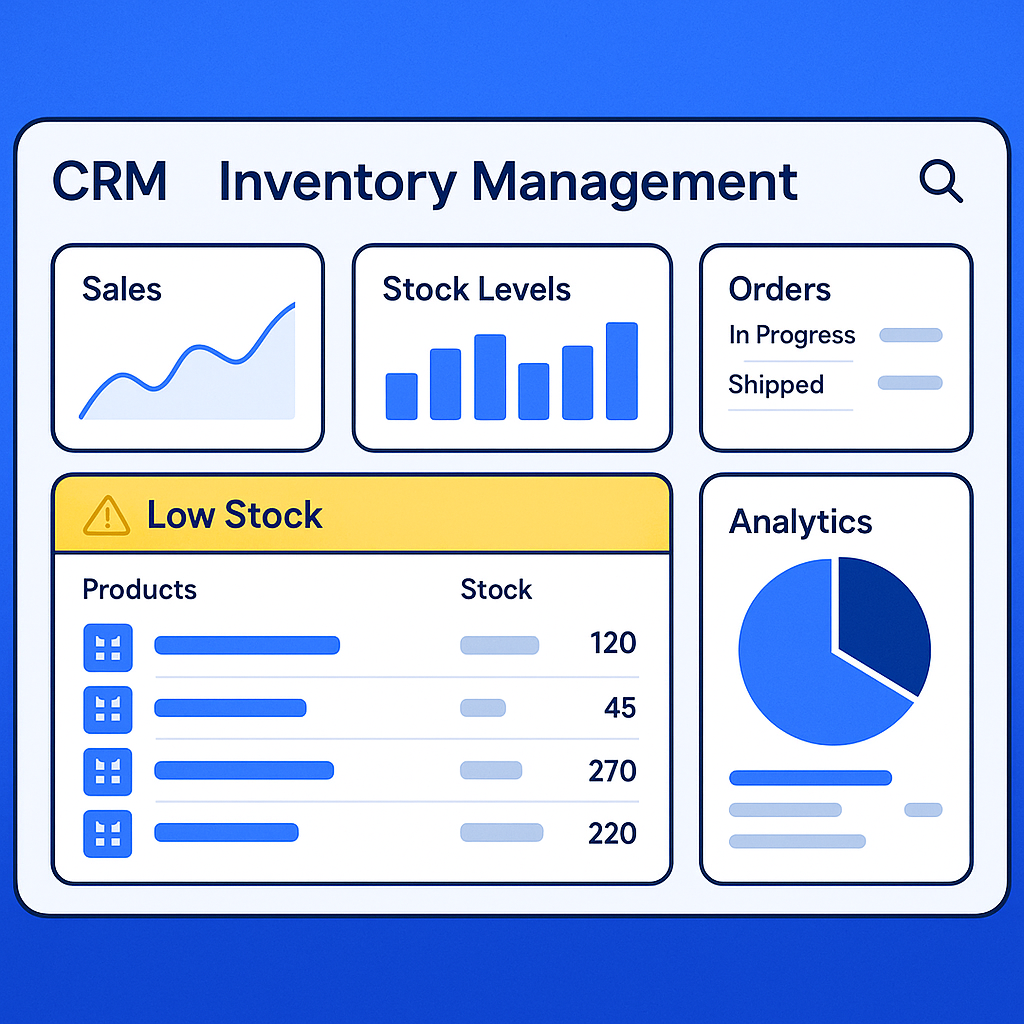

Supercharging Development with AI
Published on:
June 6, 2025
In today's fast-paced digital landscape, software development faces increasing complexity and demanding deadlines. Developers are under constant pressure to deliver high-quality applications that meet user needs. Fortunately, artificial intelligence (AI) has emerged as a transformative ally, enabling developers to work smarter and more efficiently.AI technologies enhance productivity, streamline workflows, and improve the quality of software solutions.
AI applications in software development encompass various functions, including code generation, bug detection, project management, and user experience optimization. By automating repetitive tasks, AI allows developers to focus on more creative and strategic aspects of their work. For example, AI-powered code assistants can suggest optimizations or generate entire code snippets, significantly reducing the time spent on mundane tasks. Additionally, machine learning algorithms analyze large datasets to identify patterns, providing insights that inform decision-making and lead to more effective software development.
Moreover, AI enhances collaboration among development teams. AI-driven tools that facilitate real-time communication and project tracking enable seamless teamwork, regardless of location. This fosters an agile development environment where feedback is instantaneous, and iterations occur rapidly.
In this article, we will explore how AI is revolutionizing software development, providing real-world examples of AI integration, its benefits for developers, and the future possibilities that lie ahead as AI evolves. Join us as we delve into how harnessing AI can lead to innovative solutions and improved outcomes for developers and users alike.
Introduction to AI in Software Development
The landscape of software development is undergoing a transformation, driven largely by advancements in artificial intelligence. As technology evolves, the role of developers is shifting, making AI an indispensable partner in the development process. From automating routine tasks to providing insightful data analysis, AI reshapes how developers approach their work, allowing for greater focus on innovation and problem-solving.
AI technologies, such as machine learning and natural language processing, are integrated into various aspects of software development, enhancing productivity and improving the final product's quality. With AI's ability to analyze vast amounts of data, identify patterns, and learn from past experiences, developers are equipped with powerful resources that streamline workflows and enhance collaboration.
As the demand for faster and more efficient software increases, AI stands out as a crucial enabler of agile development practices. By leveraging AI capabilities, developers can create software that meets user needs and adapts to changing requirements. This article will explore AI's applications in code generation, testing, and team collaboration, demonstrating how it supercharges the development process in today’s dynamic tech environment.
AI-Powered Code Generation
AI-powered code generation is one of the most exciting applications of artificial intelligence in software development. Tools like GitHub Copilot and OpenAI Codex are game-changers, enabling developers to write code more efficiently. These tools leverage machine learning algorithms trained on extensive code repositories to suggest real-time snippets, complete functions, and even generate entire modules based on natural language prompts.

The primary advantage of AI-assisted code generation is enhanced developer productivity. By providing instant suggestions, these tools significantly reduce the time spent on routine coding tasks. Developers can focus on higher-level design and problem-solving instead of getting bogged down by boilerplate code or syntax errors, allowing for quicker iterations and more robust software solutions.
Moreover, AI-powered tools help reduce the likelihood of human errors. By suggesting best practices and optimized code, they guide developers toward cleaner, more efficient implementations. This is particularly beneficial for less experienced programmers, who may struggle with complex syntax. With AI's assistance, they can learn as they code, gaining insights into better practices and enhancing their skills.
AI code generation tools also foster collaboration within development teams. By providing consistent code patterns, these tools help maintain code quality across different contributors, making it easier to integrate and manage large codebases. As developers harness AI for code generation, they supercharge their workflows and contribute to more reliable and maintainable software.
The next section will focus on how AI is transforming automated testing and bug detection, further enhancing the development lifecycle.
Automated Testing and Bug Detection
Automated testing and bug detection are critical components of the software development lifecycle, and AI is increasingly vital in enhancing these processes. Traditional testing methods can be time-consuming and often miss subtle bugs that arise during development. AI-driven testing frameworks are changing the game by leveraging machine learning to identify issues more efficiently.
One significant advantage of AI in automated testing ISITS ability to analyze large datasets to predict potential bugs and vulnerabilities. By learning from historical data, AI tools can recognize patterns indicating where issues are likely to occur. This predictive capability enables developers to focus their testing efforts on high-risk areas, ensuring critical bugs are identified early.
Additionally, AI can automate the creation of test cases, reducing the manual effort required for comprehensive testing. AI-driven tools can generate tests based on application usage patterns or user behavior, ensuring that all potential scenarios are covered. This speeds up the testing phase and enhances overall software quality by providing robust coverage.
AI also facilitates continuous integration and delivery(CI/CD) practices. As developers push code changes frequently, AI tools can run automated tests in real time, providing immediate feedback on code quality. This rapid testing cycle allows teams to catch and fix issues before they make it to production, leading to more stable and reliable applications.
In conclusion, AI-powered automated testing and bug detection revolutionize how software is built and maintained. By enhancing efficiency, accuracy, and coverage, AI ensures developers can deliver high-quality software faster and with greater confidence. Next, we will explore how AI improves collaboration and communication among development teams, further supercharging the software development process.
Enhanced Collaboration and Communication
Effective collaboration and communication are essential for successful software development, especially in today’s fast-paced, often remote work environments. AI is increasingly integrated into project management and communication tools, facilitating seamless teamwork and improving overall productivity.
AI-driven tools, such as smart chatbots and virtual assistants, streamline communication by providing instant answers to common queries, scheduling meetings, and summarizing discussions. For instance, AI chatbots integrated into platforms like Slack or Microsoft Teams can assist developers by pulling relevant documentation, code snippets, or project updates without interrupting workflow. This saves time and ensures that team members have access to necessary information.

In addition to improving communication, AI enhances project management by analyzing team performance and project metrics. AI algorithms can identify bottlenecks, predict potential delays, and recommend adjustments to resource allocation. For example, if a team member is consistently overloaded with tasks, AI can suggest redistributing workload to maintain project momentum.
AI also fosters better collaboration by integrating with version control systems like Git. By analyzing commit histories and pull requests, AI tools can provide insights into code changes and highlight potential integration issues before they escalate. This early detection allows developers to address conflicts collaboratively, ensuring smoother merges and a cohesive codebase.
Furthermore, AI-powered analytics can track team dynamics and collaboration patterns, offering insights into how effectively team members work together. This information can guide leadership in making informed decisions about team structures and processes, ultimately fostering a more collaborative culture.
Ethical Considerations and Challenges
As AI reshapes software development, addressing ethical considerations and challenges is crucial. While AI offers numerous benefits, its implementation raises questions about bias, accountability, and job displacement.
A primary concern is the potential for bias in algorithms used to train AI systems. If the data fed into AI models reflects societal biases, the outputs generated can perpetuate those biases in the software they help create. For instance, an AI tool trained primarily on code from a specific demographic may produce suggestions that do not account for diverse coding styles or preferences, reinforcing disparities in the tech industry.
Additionally, using AI in decision-making processes raises accountability questions. When AI tools suggest code changes or automate testing, determining who is responsible for errors arising from those suggestions can be challenging. Developers must remain vigilant and critically evaluate AI-generated outputs to ensure they align with best practices and quality standards. Establishing clear guidelines and accountability measures is essential to mitigate risks.
Job displacement is another significant concern, as AI automates routine tasks traditionally performed by developers. While AI enhances productivity and creates new opportunities, it may lead to job losses, particularly in entry-level positions. Organizations must invest in reskilling and upskilling their workforce to ensure employees can adapt to the evolving landscape. Fostering a culture of continuous learning helps teams leverage AI as a collaborative tool rather than a replacement.
In summary, while AI has transformative potential for software development, navigating its ethical implications is essential. By addressing bias, accountability, and workforce impact, developers and organizations can harness AI responsibly and inclusively.
Future Trends in AI and Software Development
As AI evolves, its impact on software development is poised to grow even more profound. Emerging trends suggest that AI's role in this field will bring significant changes, enhancing productivity, collaboration, and innovation.
One promising trend is the advancement of AI-driven low-code and no-code platforms. These platforms empower users, regardless of technical expertise, to create applications with minimal coding. By automating repetitive tasks and providing intelligent suggestions, these tools accelerate project timelines and open opportunities for a broader range of individuals to contribute to software creation.
Another trend is the increasing sophistication of AI-powered collaborative coding environments. Future tools may integrate advanced natural language processing and machine learning capabilities to facilitate real-time collaboration. Imagine a coding platform where developers can discuss, write, and review code simultaneously, with AI providing contextual suggestions based on ongoing conversations.
Additionally, we may see a rise in self-healing software systems. These systems can autonomously detect and resolve issues in real time, learning from past incidents to improve their responses. This capability significantly reduces downtime and improves software reliability, allowing businesses to focus on innovation rather than troubleshooting.
The use of AI for predictive analytics will also gain traction, allowing developers to make data-driven decisions about project management and resource allocation. By analyzing past project data, AI can provide insights into potential roadblocks and resource needs, helping teams optimize their workflows.
As AI becomes more ingrained in development, the importance of ethical AI practices will grow. Developers will need to prioritize transparency, accountability, and fairness to ensure technology benefits all users equitably. Organizations that adopt responsible AI practices will not only mitigate risks but also build trust among their stakeholders.
Conclusion
Artificial intelligence is revolutionizing software development, offering powerful tools that enhance productivity, collaboration, and innovation. From AI-driven code generation to automated testing and improved team communication, developers are better equipped to meet the demands of modern software projects. However, as AI continues to evolve, ethical considerations must be addressed to ensure technology is used responsibly.
By embracing AI technologies, developers can supercharge their workflows, delivering high-quality software solutions that meet user needs and adapt to changing demands. As the future unfolds, the synergy between AI and software development will pave the way for exciting possibilities, shaping the next generation of technology and innovation.



.png)
.png)
.png)
